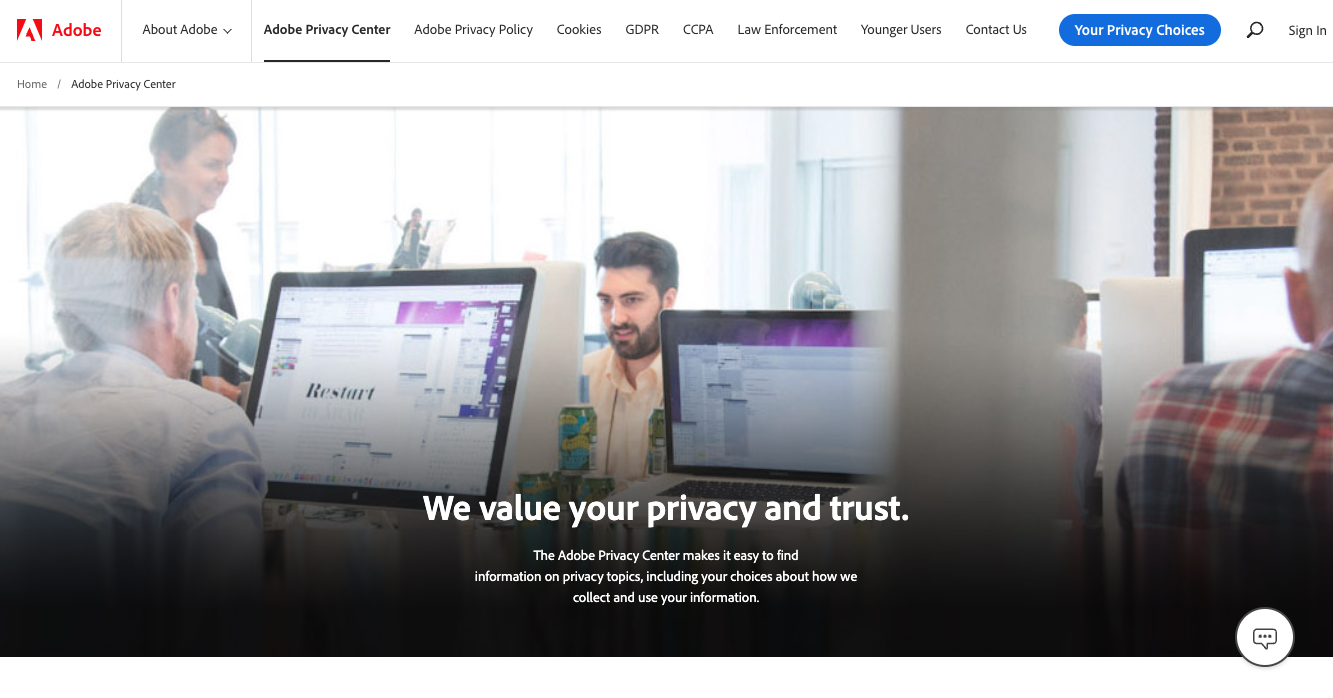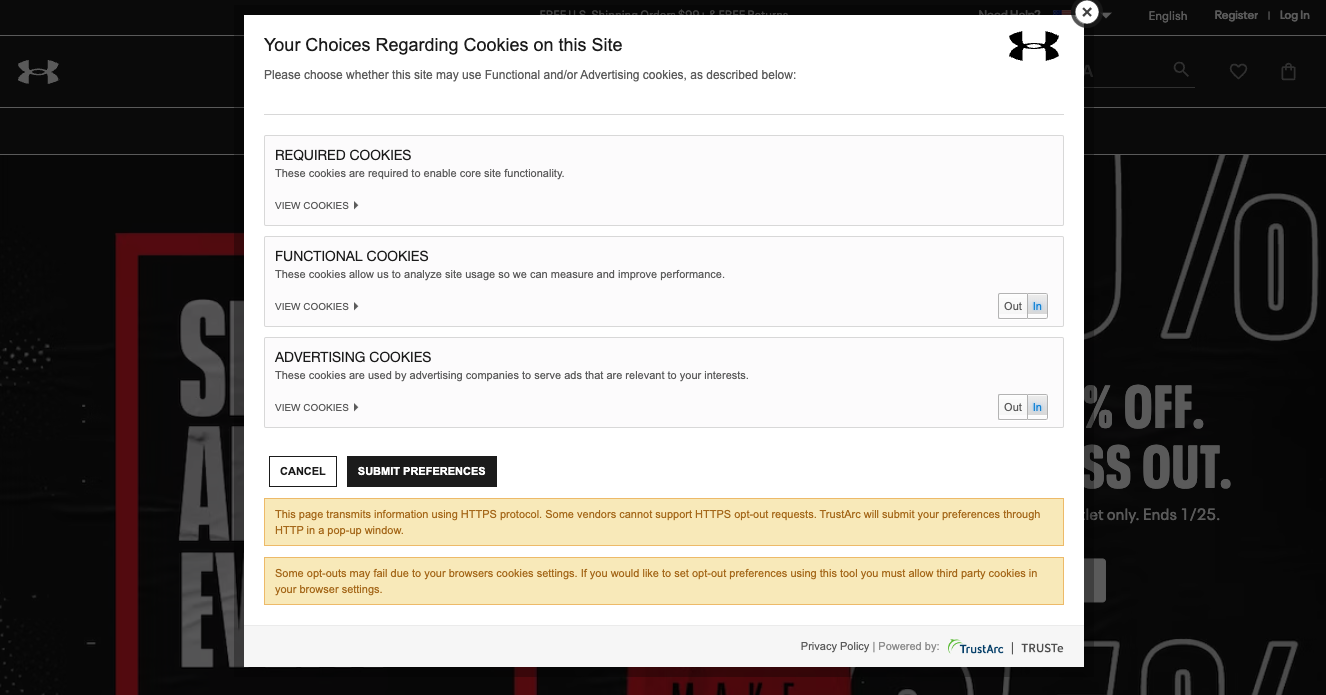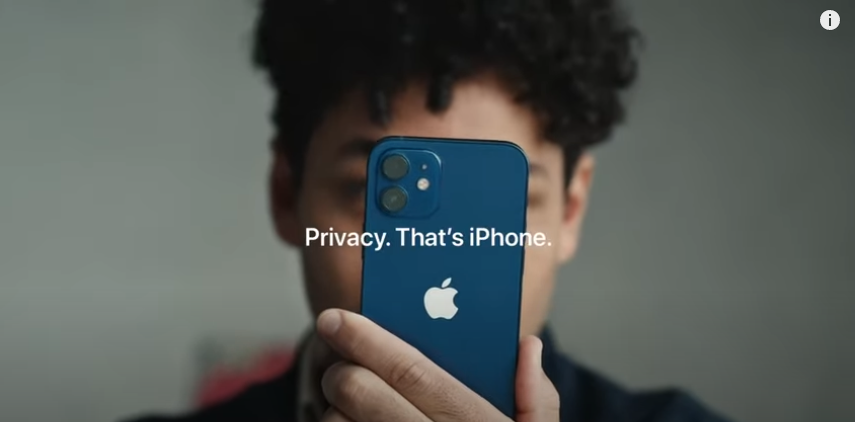This Super Bowl Sunday, among all the multimillion-dollar commercials you’re likely to see a few companies touting their data privacy practices as part of their ad campaign. Why?
Because they understand privacy is important to their customers.
So who are some of our top privacy contenders? Which companies walk and walk and talk the talk?
Which brands are trusted the most?
These companies are at the forefront of the privacy movement and consistently stand up for their users’ rights in an increasingly data-driven world.
It’s no surprise that two out of the three following companies made the very top two spots on Sagefrog’s 2022 B2B Trusted Brands Report, scoring over 75+ on their index. Process and practices that put privacy first inspire consumer and business trust.
And if you’re wondering if you should care about trust, the answer is most certainly yes. People buy from people and brands they trust in B2B and B2C. And as consumers become more aware of how companies use their personal data, a reputation of being a privacy-first company will be critical to maintaining business.

Adobe
Adobe, a software company known for its creative products such as Photoshop and Illustrator, also takes customer privacy seriously. It uses encryption to protect sensitive information and has implemented strict access controls to ensure that only authorized personnel can access customer data. Additionally, the company conducts regular security audits to identify and address any vulnerabilities.
Also included is the Adobe Privacy Center, a user-friendly way to view and manage your information in Adobe products. The center allows users to access privacy-related settings and review their Adobe data collection and use choices. Their language is clear, concise, and easy to understand, giving users what they need to stay informed and in control of their data.

Under Armour
Under Armour, a leading sports apparel and accessories brand, commits to protecting its customers’ personal information. It’s implemented industry-standard security measures to safeguard customer data, including encryption and firewalls.
Under Armour also regularly reviews and updates its privacy policy to ensure it complies with all relevant laws and regulations. The Under Armour website has a cookie consent banner giving users choices about whether or not and how their cookies are used.
The website clearly outlines the types of cookies in use:
- cookies that are required to enable core site functionality,
- functional cookies that allow UA to analyze site usage so they can measure and improve performance,
- and advertising cookies used by advertising companies to serve ads that are relevant to the user’s interest.
Users have the ability to opt in or out of these cookies at any time by following the instructions given in their browser.

Apple* most trusted brand
Apple, a technology giant known for its popular iPhone and iPad devices, has long been a champion of user privacy. The organization encrypts all data stored on its devices and has a strict policy against collecting and sharing user data without explicit consent. Apple also provides detailed information about its privacy practices and allows users to control the collected and shared data.
Apple is known for numerous ads with one core message: We care about your privacy. One of these ads is called Tracked. The ad comically depicts what digital tracking would look like in everyday life (it’s pretty creepy). It ends with the tagline, “Privacy. That’s iPhone.”
Another ad from this series depicts the auction of someone’s personal data, such as emails, purchases, and location information.
Even more recently, Apple rolled out a five-minute video, A Day in the Life of an Average Person’s Data, to teach consumers how data companies are trying to collect personal information and how iPhone can help protect people.
Apple is not only dedicated to privacy by design, protection by default, and increasing consumer trust, but it’s also focusing on how to educate consumers about how companies are using their data and what options consumers have for protecting it. Apple demonstrates that they value consumer privacy by giving consumers online resources and 30-minute in-person sessions to learn about its privacy controls.
What do the most trusted brands have in common?
Each company has implemented robust measures focused on transparency and choice to protect its customers’ personal data and earn itself a reputation as a leader in data privacy.
Adobe’s efforts in protecting sensitive customer data have earned multiple certifications and awards. Under Armour’s commitment to data privacy is evident through its partnerships with leading security and privacy experts across the globe. Apple’s strong stance on privacy leads them to invest significantly in advanced security technologies to safeguard customer data.
All three demonstrate a deep commitment to data protection and privacy as they provide consumers with the peace of mind that their personal information is safe. And your business can follow their lead.
Are you wondering how to use privacy to differentiate your business and inspire consumer trust and loyalty?
You might think this will take too much time, effort, and resources. Although establishing yourself as a trusted leader in data protection won’t happen overnight, it is possible to create a robust and efficient privacy program without Apple or Adobe’s massive resources.
Start by embedding data protection and privacy into your new products and services strategies. Don’t ask for more information than is absolutely necessary to conduct business. Don’t collect data that you don’t need or that poses a high risk to the data subject if exposed.
Make a point to adopt a privacy-by-default approach. Thus, by default, you will not collect, use, or process data unless given consent otherwise.
Next, examine your current data use and processing. What data is the company collecting and storing? Where is it stored? Where does it go? Is it shared or sold? How long is the information retained? Once you know and document your current practices, create a realistic plan to improve your company’s data protection posture.
Make sure to include creating privacy policies that are transparent and easy to read and understand. Companies have a big opportunity to differentiate themselves and build a strong relationship with their consumers by translating the typical legal language in a privacy policy into something more digestible.
It’s common for businesses to start their privacy program using spreadsheets. Eventually, many find that managing a privacy program with spreadsheets isn’t efficient and look for a software solution. But before you start searching for the perfect privacy management technology, read The Do’s and Don’ts of Selecting Privacy Automation Software.








